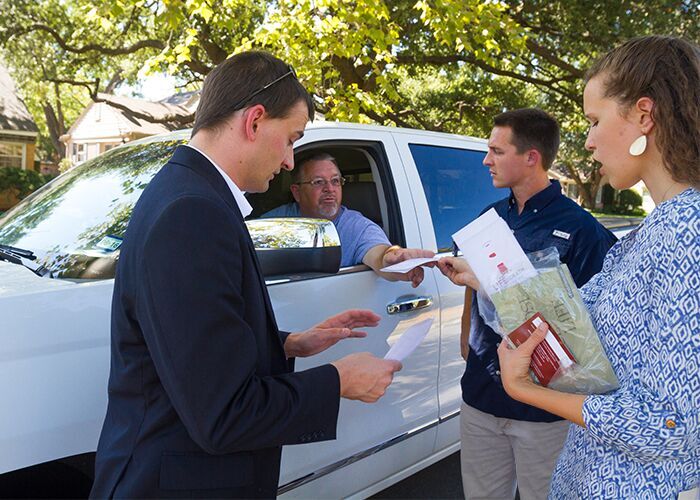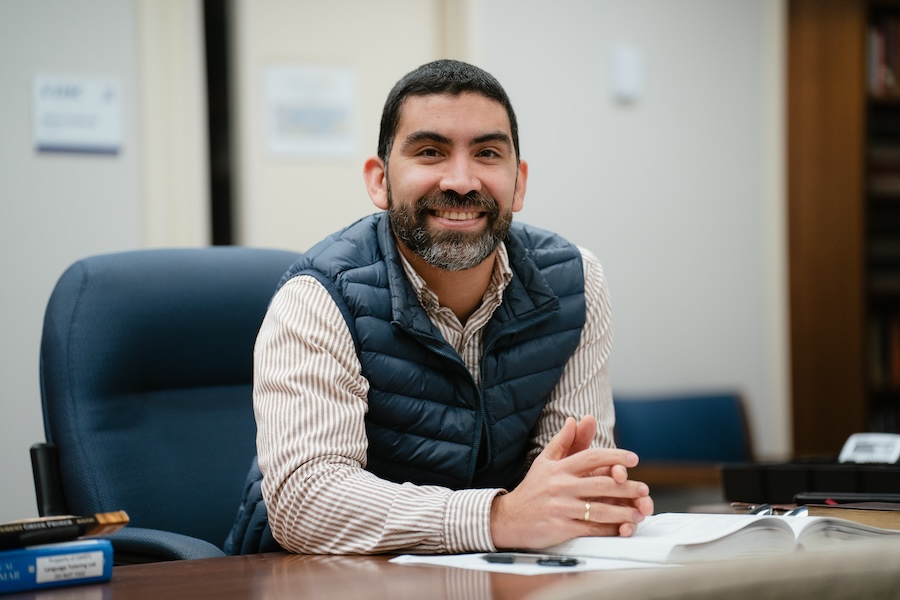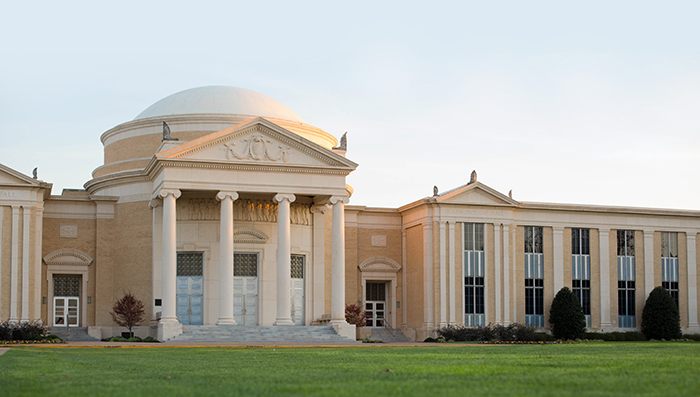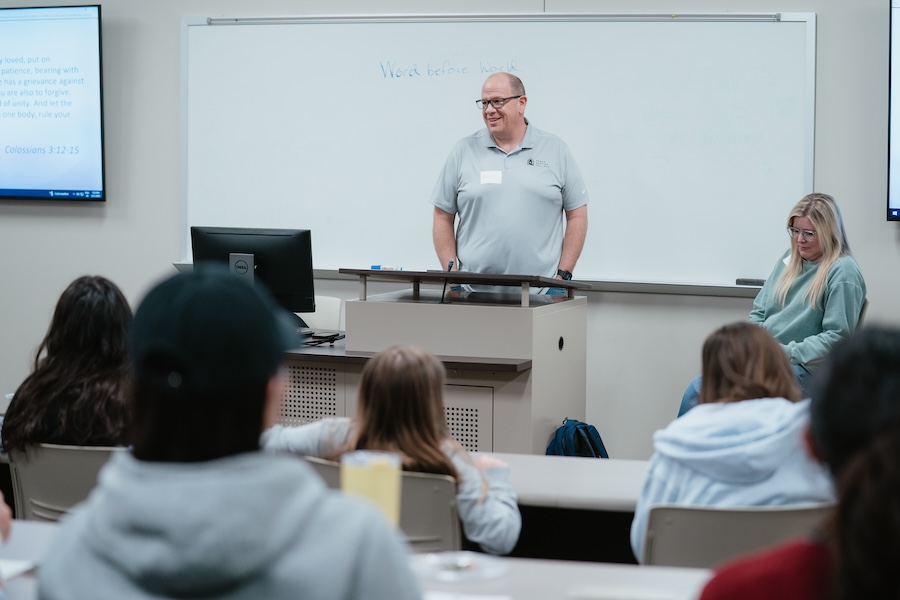Fall evangelism practicums see 387 saved

L.R. Scarborough, the second president of Southwestern Baptist Theological Seminary, once said, “A theological seminary should not be a cold-storage for the preserving of theological eggs, but rather a warm incubator for the hatching of live, burning, shining preachers of the Gospel with souls hot with zeal and full of power.” Matt Queen, Southwestern’s L.R. Scarborough Chair of Evangelism (“Chair of Fire”), says the evangelism practicums at Southwestern ensure that students “don’t put their theology on ice, but that their theology is ignited on fire for the world to see and hear of salvation in Jesus Christ alone.”
Although all students and faculty at Southwestern are encouraged to regularly practice evangelism, evangelism practicums, which entail the presentation of the Gospel with a supervisor, are a course requirement for many degrees at the seminary. While such a requirement may sometimes seem like a chore, the results of the fall 2015 semester’s practicum classes demonstrate the effectiveness of these courses for furthering the Kingdom of God.
A total of 1,957 Gospel presentations were made over the course of the semester, with 387 people surrendering their lives to Christ as a result. This is an increase from last spring, which saw 1,787 Gospel presentations and 328 saved. In addition, students were able to follow up with more than half of those who became Christians, either inviting them to church or arranging for them to attend a local church or Bible study.
Regarding the importance of requiring these practicum courses of the majority of students at the seminary, Assistant Professor of Missions Mike Morris explains, “Professors can teach evangelism and mission principles in a classroom, but students must engage in evangelism and missions in the laboratory of the ‘real world’ during their seminary career in order to really learn these subjects well and develop comfort and intentionality.”
Morris says that if students have not become comfortable and intentional in these disciplines during their time in seminary, they will most likely neglect them on their fields of service after graduation. “If our seminary graduates are not modeling evangelism for churches in their own cultures and cross-culturally,” Morris says, “then our churches will do very little witnessing. Many Southern Baptist churches are dying, and their lack of witness is one major factor. We must develop students who are both scholars and soul-winners.”



